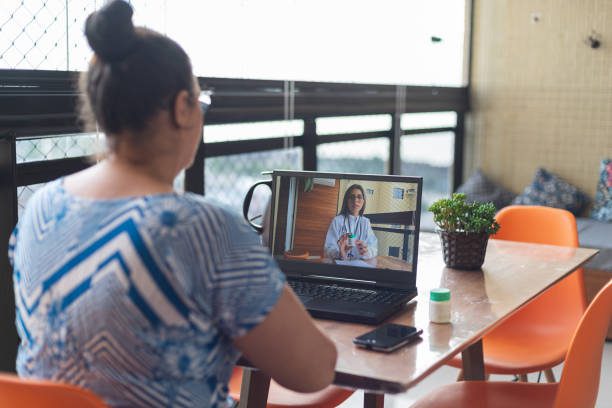Online therapy has become an essential tool for mental health care, offering convenience, flexibility, and accessibility. While the benefits are undeniable, some people worry about maintaining their privacy during virtual sessions. Choosing platforms with licensed online therapists and taking proactive steps can ensure that your personal information and conversations remain confidential. This guide explores strategies for safeguarding your privacy during online therapy, helping you feel secure as you work toward better mental health.
Why Privacy Matters in Online Therapy
Privacy is a cornerstone of effective therapy. For clients to feel comfortable sharing their thoughts and emotions, they need to trust that their sessions are confidential. In online therapy, protecting privacy involves safeguarding both the therapeutic relationship and the technical infrastructure used for communication.
Key Privacy Concerns in Online Therapy
- Data Security: Ensuring sensitive information is not intercepted or accessed by unauthorized parties.
- HIPAA Compliance: Ensuring therapists and platforms adhere to the Health Insurance Portability and Accountability Act, which protects personal health information.
- Session Confidentiality: Preventing breaches of privacy during live video, audio, or chat sessions.
Licensed online therapists and reputable platforms implement robust measures to address these concerns, providing a safe environment for therapy.
Step 1: Choose the Right Online Therapy Platform
Not all online therapy platforms are created equal. Selecting a provider that prioritizes security is the first step in protecting your privacy.
What to Look For in a Platform
- Licensed Online Therapists: Verify that all therapists on the platform are licensed professionals qualified to provide care.
- HIPAA Compliance: Ensure the platform complies with regulations designed to protect health information.
- End-to-End Encryption: Check that all communications are encrypted to prevent unauthorized access.
- Secure Payment Processing: Confirm that the platform uses secure methods for billing and storing financial information.
Reputable platforms like BetterHelp, Talkspace, and Amwell have strong privacy policies in place to safeguard client data.
Step 2: Verify Your Therapist’s Credentials
Working with a licensed therapist is essential for maintaining privacy and receiving high-quality care. Licensed professionals are trained to follow ethical guidelines and legal requirements for confidentiality.
How to Verify Credentials
- Check Licensing: Confirm the therapist is licensed in your state and has appropriate credentials, such as LCSW, LPC, or LMFT.
- Review Specializations: Look for therapists experienced in addressing your specific concerns, such as anxiety, trauma, or relationship issues.
- Ask About Privacy Practices: During your initial consultation, inquire about how they handle client information and protect session confidentiality.
Licensed online therapists are bound by professional codes of ethics, ensuring they prioritize client privacy in all aspects of their work.
Step 3: Use Secure Technology
The devices and networks you use for online therapy sessions can impact your privacy. Taking steps to secure your technology ensures that your sessions remain confidential.
Tips for Secure Technology Use
- Use a Private Network: Avoid public Wi-Fi and use a secure home network with a strong password.
- Keep Software Updated: Regularly update your operating system, browser, and any apps used for therapy to ensure they have the latest security patches.
- Enable Two-Factor Authentication: Use two-factor authentication for your email and therapy platform accounts to add an extra layer of security.
- Use a Secure Device: Conduct sessions on a personal device, not a shared or public computer.
Step 4: Optimize Your Environment
Creating a private, comfortable space for therapy sessions minimizes the risk of interruptions and ensures confidentiality.
Setting Up Your Space
- Choose a Quiet Room: Select a location where you won’t be overheard or interrupted.
- Use Headphones: Wearing headphones enhances audio clarity and prevents others from hearing your therapist’s responses.
- Communicate Boundaries: Inform household members of your session schedule and request privacy during that time.
- Lock the Door: If possible, lock the door to prevent unintentional interruptions.
A secure and private environment helps you feel more at ease during sessions, allowing for deeper engagement in therapy.
Step 5: Understand the Platform’s Privacy Policies
Before starting therapy, take the time to review the platform’s privacy policies and terms of service. Knowing how your data is collected, stored, and used can provide peace of mind.
Key Questions to Ask
- What Data Is Collected?: Understand what personal and session-related data the platform stores.
- How Is Data Used?: Check whether data is shared with third parties for marketing or other purposes.
- Can You Delete Your Data?: Ensure you have the option to delete your account and associated information if you discontinue therapy.
Platforms working with licensed online therapists typically have transparent privacy policies that align with industry standards.
Step 6: Communicate Openly with Your Therapist
Open communication with your therapist about privacy concerns can help address any lingering doubts.
Topics to Discuss
- Session Recording: Confirm whether sessions are recorded and how recordings are stored.
- Backup Plans: Ask about alternative communication methods in case of technical issues.
- Privacy Breach Protocols: Understand the steps your therapist or platform would take in the event of a data breach.
Licensed online therapists are accustomed to discussing these topics and can provide reassurance about their commitment to confidentiality.
Step 7: Be Cautious with Session Notes
Many clients find it helpful to take notes during therapy sessions. However, storing these notes securely is essential to protect your privacy.
Tips for Secure Note-Taking
- Use Encrypted Apps: Consider using a secure, encrypted note-taking app to store your therapy notes.
- Avoid Public Storage: Don’t store sensitive notes on shared or public devices.
- Lock Physical Notes: If you prefer handwritten notes, keep them in a locked drawer or safe location.
Step 8: Regularly Review Your Privacy Practices
Maintaining privacy in online therapy is an ongoing process. Regularly assess your practices to ensure you’re taking all necessary precautions.
Checklist for Ongoing Privacy
- Update passwords and enable two-factor authentication for all accounts.
- Review platform updates and privacy policy changes.
- Continue using secure networks and devices for therapy sessions.
- Monitor your accounts for unauthorized activity.
Final Thoughts
Protecting your privacy during online therapy sessions is essential for building trust and ensuring a safe space to share. By working with licensed online therapists on secure platforms and taking proactive steps to safeguard your environment, technology, and data, you can fully engage in therapy without worrying about confidentiality breaches.
Online therapy offers the opportunity to receive high-quality mental health care from the comfort of your home. With the right tools and practices in place, you can focus on achieving your goals and improving your well-being, knowing your privacy is protected every step of the way.











